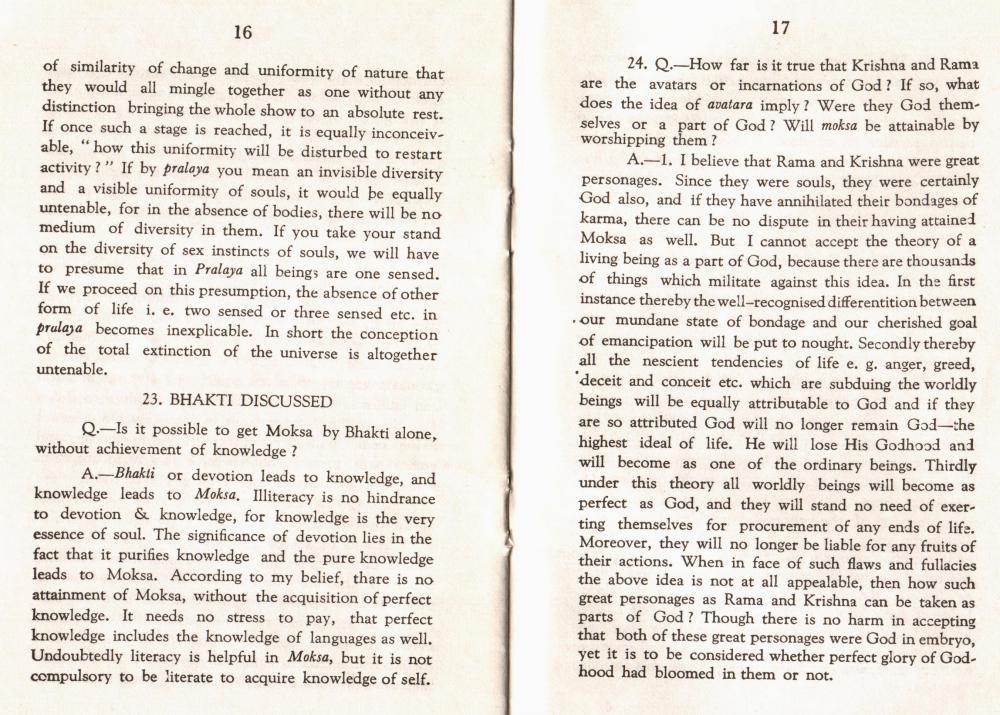________________
17
16
of similarity of change and uniformity of nature that they would all mingle together as one without any distinction bringing the whole show to an absolute rest. If once such a stage is reached, it is equally inconceivable, "how this uniformity will be disturbed to restart activity?" If by pralaya you mean an invisible diversity and a visible uniformity of souls, it would be equally untenable, for in the absence of bodies, there will be no medium of diversity in them. If you take your stand on the diversity of sex instincts of souls, we will have to presume that in Pralaya all beings are one sensed. If we proceed on this presumption, the absence of other form of life i. e. two sensed or three sensed etc. in pralaza becomes inexplicable. In short the conception of the total extinction of the universe is altogether untenable.
23. BHAKTI DISCUSSED Q.-Is it possible to get Moksa by Bhakti alone, without achievement of knowledge ?
A.-Bhakti or devotion leads to knowledge, and knowledge leads to Moksa. Illiteracy is no hindrance to devotion & knowledge, for knowledge is the very essence of soul. The significance of devotion lies in the fact that it purifies knowledge and the pure knowledge leads to Moksa. According to my belief, thare is no attainment of Moksa, without the acquisition of perfect knowledge. It needs no stress to pay, that perfect knowledge includes the knowledge of languages as well. Undoubtedly literacy is helpful in Moksa, but it is not compulsory to be literate to acquire knowledge of self.
24. Q.--How far is it true that Krishna and Rama are the avatars or incarnations of God? If so, what does the idea of avatara imply? Were they God themselves or a part of God? Will moksa be attainable by worshipping them?
A.-1. I believe that Rama and Krishna were great personages. Since they were souls, they were certainly God also, and if they have annihilated their bondages of karma, there can be no dispute in their having attained Moksa as well. But I cannot accept the theory of a living being as a part of God, because there are thousands of things which militate against this idea. In the first instance thereby the well-recognised differentition between our mundane state of bondage and our cherished goal of emancipation will be put to nought. Secondly thereby all the nescient tendencies of life e. g. anger, greed, deceit and conceit etc. which are subduing the worldly beings will be equally attributable to God and if they are so attributed God will no longer remain God-the highest ideal of life. He will lose His Godhood and will become as one of the ordinary beings. Thirdly under this theory all worldly beings will become as perfect as God, and they will stand no need of exerting themselves for procurement of any ends of life. Moreover, they will no longer be liable for any fruits of their actions. When in face of such flaws and fullacies the above idea is not at all appealable, then how such great personages as Rama and Krishna can be taken as parts of God? Though there is no harm in accepting that both of these great personages were God in embryo, yet it is to be considered whether perfect glory of Godhood had bloomed in them or not.




